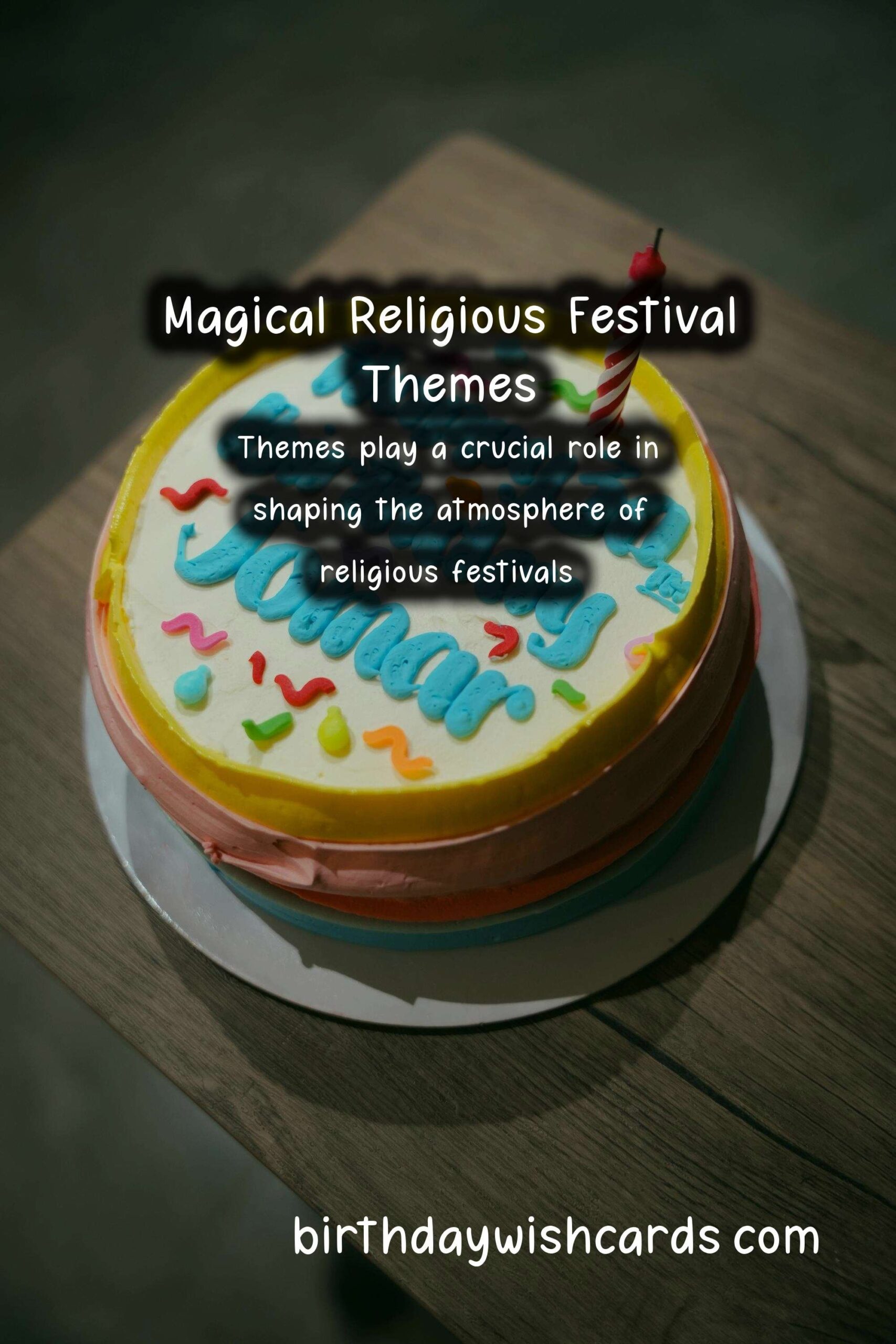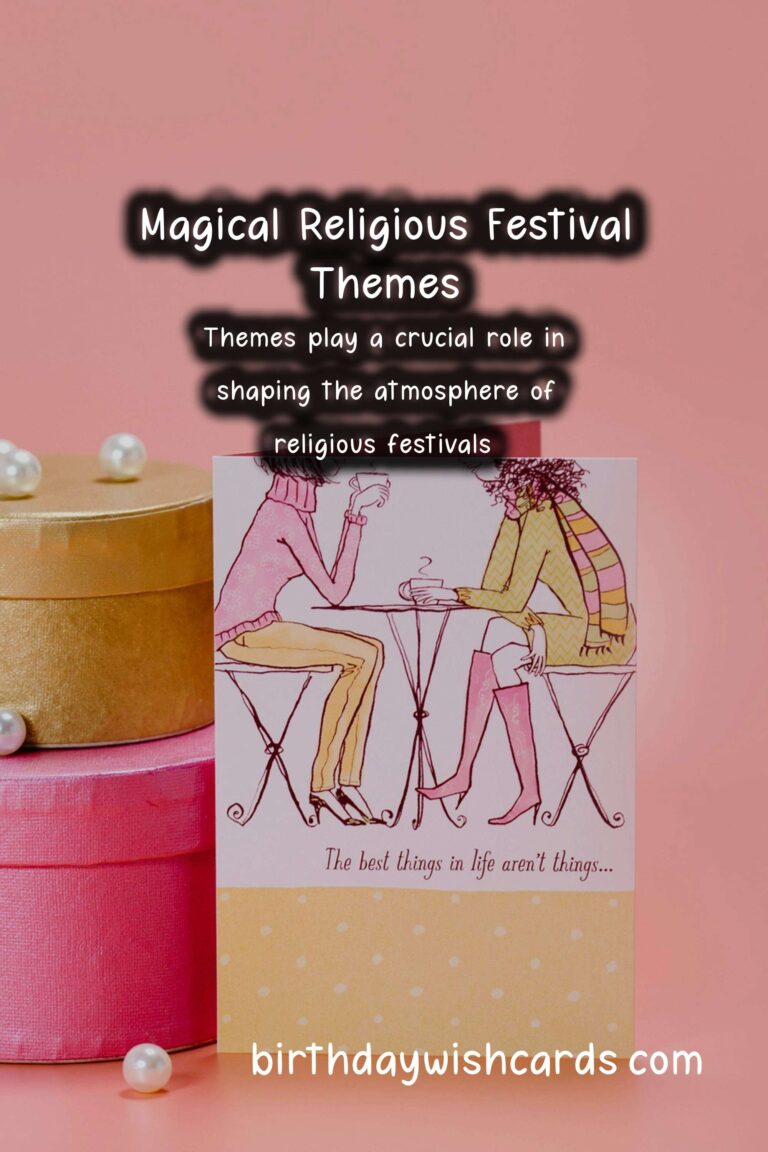
Religious festivals are vibrant celebrations filled with rich traditions, captivating themes, and moments that create lasting memories. These events are not just about worship; they are an opportunity for communities and families to come together and share in the magic of their faith. In this article, we will explore various themes for religious festivals that not only enhance the experience but also create unforgettable memories.
The Importance of Themes in Religious Festivals
Themes play a crucial role in shaping the atmosphere of religious festivals. They guide the decorations, music, food, and activities that take place during the celebrations. Having a specific theme can also help participants connect with their beliefs on a deeper level, enhancing their overall experience. Themes can range from historical events to specific aspects of spirituality, allowing for a diverse range of celebrations.
1. Themed Decorations
Decorations set the visual tone for a festival. By incorporating thematic elements, you can transform venues into enchanting spaces that reflect the spirit of the event. Here are a few themes:
- Nature and Creation: Using flowers, plants, and natural materials to symbolize creation can bring a festival to life. Incorporate earthy colors and textures to evoke a sense of wonder.
- Historical Events: Celebrate significant events in your religious history with decorations that reflect that era. This could include traditional attire, artifacts, and symbols unique to that period.
- Spiritual Journeys: Create a spiritual path using elements that represent different stages of a faith journey. This can encourage reflection and mindfulness among participants.
2. Engaging Activities
Activities tailored to the festival’s theme can keep participants engaged and connected. Consider including:
- Workshops: Offer workshops that teach traditional crafts, music, or dance associated with the festival theme.
- Cultural Performances: Invite local artists to perform dance, music, or theater that reflects the festival’s theme. This not only entertains but also educates attendees.
- Community Service: Organize charitable activities that align with the festival’s principles, encouraging attendees to give back to the community.
3. Themed Cuisine
Food is often a central element of religious festivals, and themed cuisine can enhance the experience further. Plan menus that reflect:
- Traditional Dishes: Serve food that holds cultural significance within the religious context, allowing participants to taste the traditions.
- Symbolic Foods: Incorporate dishes that represent specific ideas or stories within the religion, such as those that symbolize abundance, faith, or community.
- Fusion Cuisine: Blend traditional flavors with contemporary culinary techniques to create innovative dishes that resonate with both old and new generations.
4. Celebratory Rituals
Rituals are the heart of religious festivals. Theme your rituals to create a unique experience:
- Lighting Ceremonies: Use candles or lanterns in a way that reflects the festival theme, creating a mesmerizing ambiance.
- Prayers and Meditations: Incorporate prayers that align with the festival’s focus, promoting spiritual reflection among participants.
- Processions: Organize processions featuring themed attire and decorations to signify unity and celebration within the community.
5. Community Engagement
Religious festivals should foster community spirit. Engage attendees through:
- Volunteer Opportunities: Allow community members to contribute to the festival planning and execution, creating a sense of ownership.
- Feedback Mechanisms: Establish ways for attendees to provide feedback on the festival theme and activities, allowing for continuous improvement.
- Focus Groups: Host discussions before the festival to gather ideas on themes, ensuring everyone feels included in the planning process.
6. Kid-Friendly Themes
Involving children in religious festivals makes them educational and fun. Consider:
- Storytelling Sessions: Use stories from religious texts to engage children. Dynamic storytelling can captivate their imagination.
- Craft Stations: Set up craft stations where children can create themed items related to the festival.
- Interactive Plays: Organize plays that allow children to learn through action while embodying characters from religious stories.
7. The Role of Technology
In today’s digital age, technology can enhance the festival experience:
- Live Streaming: Use live streaming to allow those who cannot attend in person to participate remotely.
- Social Media Integration: Create a unique hashtag for the festival to encourage sharing of memories and experiences online.
- Interactive Apps: Develop an app where attendees can schedule activities, receive updates, and learn more about the festival theme.
Conclusion
Magical religious festivals come to life through thoughtful themes and engaging activities that foster community spirit and create lasting memories. By focusing on decorations, cuisine, rituals, and technological integration, we can ensure these celebrations resonate with participants both spiritually and emotionally. As we celebrate, let’s honor our traditions while creating new memories that will be cherished for years to come.
Religious festivals are vibrant celebrations filled with rich traditions. Themes play a crucial role in shaping the atmosphere of religious festivals.
#ReligiousFestivals #MemorableThemes #CommunityCelebrations

